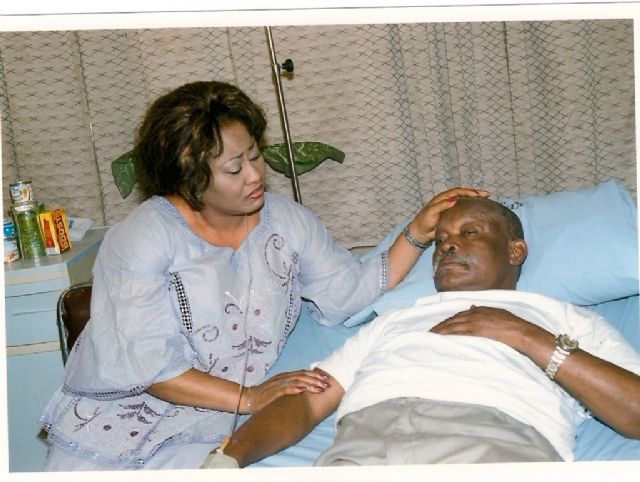
The Sandex Auto Care garage in Lagos, Nigeria, seems like any other auto shop. Mechanics get under the hoods of cars, fixing suspension systems and changing oil. But there’s a difference. The staff repairing these cars is made up of women and girls. That’s how proprietor Sandra Aguebor has run her shop and non-profit organization, the Lady Mechanic Initiative (LMI), since 2004. “The women not only have jobs,” says Aguebor, “they have more self-esteem.”
Aguebor, Nigeria’s first female mechanic, set up shop on a small patch of land under a cardboard overhang several years ago, fulfilling her childhood dream. Whenever she would see a woman broken down on the often-dangerous streets of Lagos, she would stop to help—changing tires, restarting engines and dispensing basic car advice. Those roadside repairs made her realize other women might benefit from learning her trade. It became clear LMI’s impact could reach the larger community. “It’s not only the girl who benefits from the training,” says Aguebor. “It’s also her family, partners, friends and the environment.”
That’s because Aguebor recruits mainly women who’ve been marginalized by poverty, prostitution and abuse to apprentice in her state-of-the-art garage. Other women and girls, vulnerable in the country’s male-dominated culture, such as widows, refugees and orphans, have also signed up. This September, 50 women will join LMI’s three-year program, while others will continue their education at 10 partner workshops around Lagos. Not only will these women be trained in the fundamentals of auto repair but they’ll also be instructed in entrepreneurial skills that can give them secure livelihoods once they’ve passed the trade exam. When they graduate, these women are each given a toolbox in place of a printed diploma. It’s a symbol of change—and a way out of poverty.



















